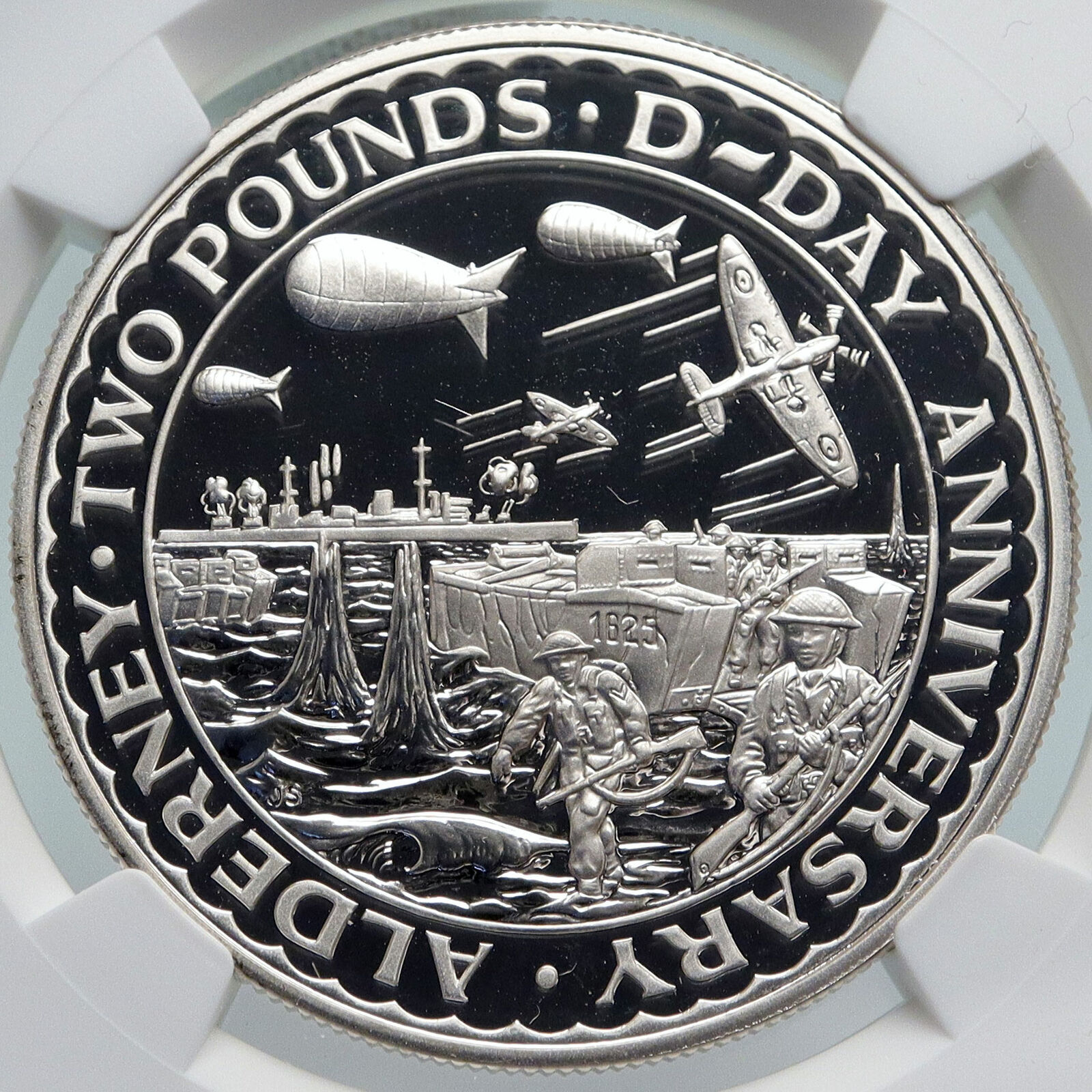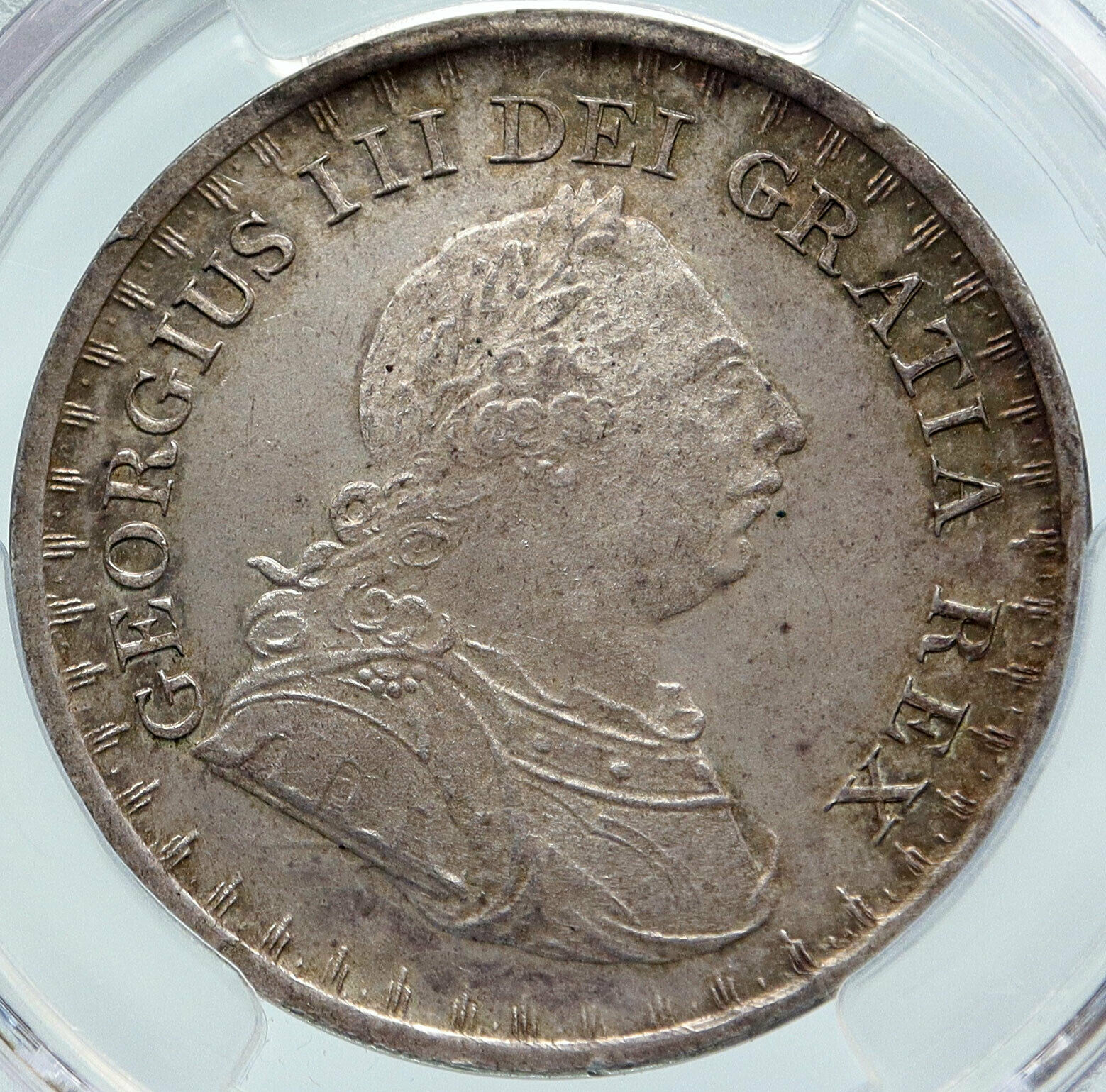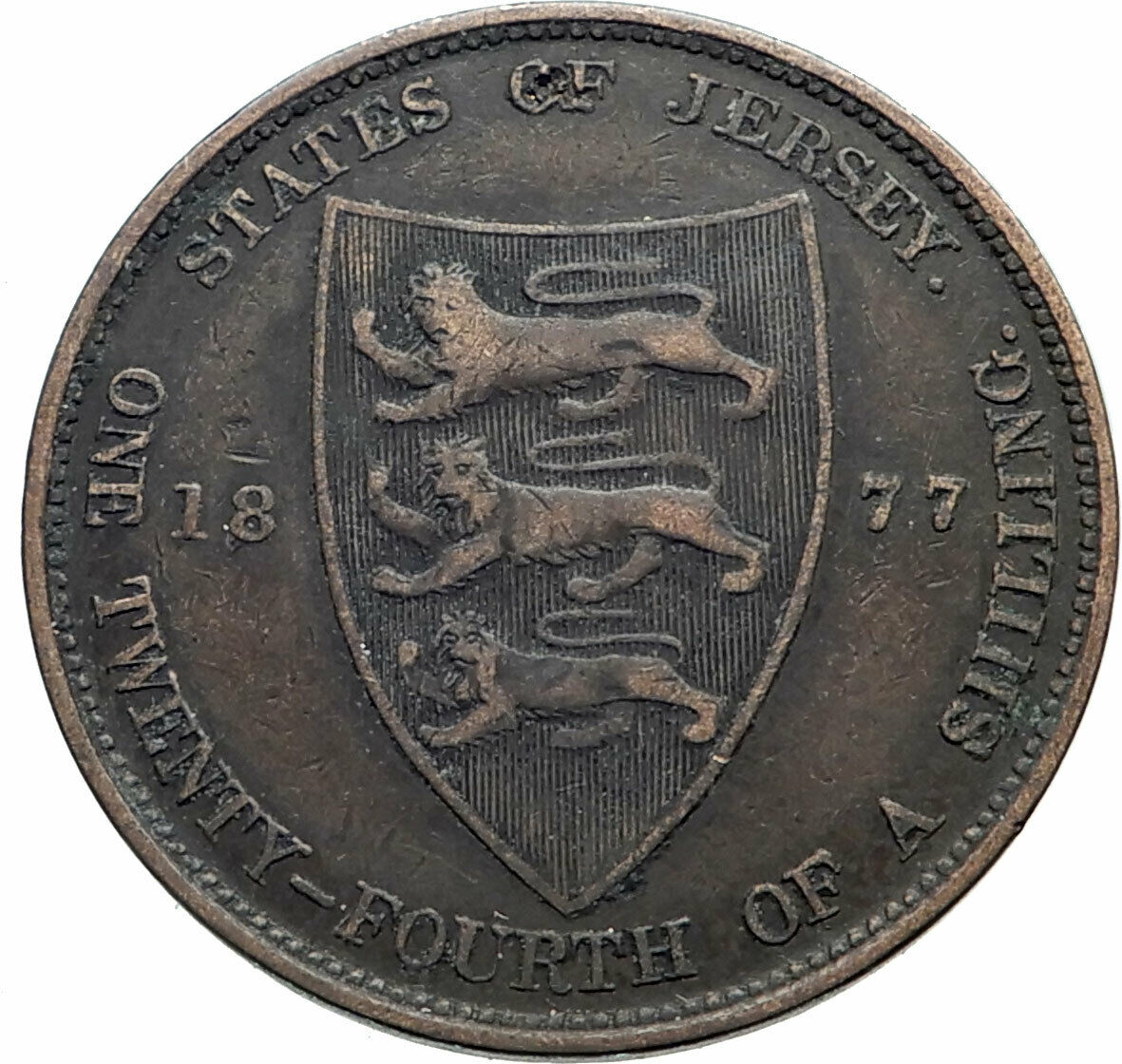|
Great Britain under Elizabeth II – Queen: 6 February 1952–present
2012 London Summer Olympics – Colorized
2012 Colorized Piefort Proof Silver 5 Pounds 38.61mm (28.28 grams) 0.925 Silver (0.841 oz. ASW)
Reference: SP# 4924
Certification: NGC PF 65 ULTRA CAMEO 2845076-003
ELIZABETH·II·D·G·REG·F·D FIVE POUNDS·2012 IRB, Elizabeth facing right.
LONDON 2012, Design features the London skyline and the River Thames, with the pictograms of athletes placed around the outside of the design like a clock face, representing one of London’s greatest icons – Big Ben. The official London 2012 Olympic emblem appears in colour at the top of the design.
You are bidding on the exact item pictured, provided with a Certificate of Authenticity and Lifetime Guarantee of Authenticity.
 The 2012 Summer Olympics, formally the Games of the XXX Olympiad and commonly known as London 2012, was an international multi-sport event that was held from 27 July to 12 August 2012 in London, United Kingdom. The first event, the group stage in women’s football, began on 25 July at the Millennium Stadium in Cardiff, followed by the opening ceremony on 27 July. 10,768 athletes from 204 National Olympic Committees (NOCs) participated. The 2012 Summer Olympics, formally the Games of the XXX Olympiad and commonly known as London 2012, was an international multi-sport event that was held from 27 July to 12 August 2012 in London, United Kingdom. The first event, the group stage in women’s football, began on 25 July at the Millennium Stadium in Cardiff, followed by the opening ceremony on 27 July. 10,768 athletes from 204 National Olympic Committees (NOCs) participated.
Following a bid headed by former Olympic champion Sebastian Coe and then-Mayor of London Ken Livingstone, London was selected as the host city on 6 July 2005 during the 117th IOC Session in Singapore, defeating bids from Moscow, New York City, Madrid, and Paris. London became the first city to host the modern Olympics three times, having previously hosted the Summer Games in 1908 and in 1948.
Construction for the Games involved considerable redevelopment, with an emphasis on sustainability. The main focus was a new 200-hectare (490-acre) Olympic Park, constructed on a former industrial site at Stratford, East London. The Games also made use of venues that already existed before the bid.
The Games received general praise for their organisation, with the volunteers, the British military and public enthusiasm praised particularly highly. The opening ceremony, directed by Danny Boyle, received widespread acclaim throughout the world, particular praise from the British public and a minority of widely ranging criticisms from some social media sites. During the Games, Michael Phelps became the most decorated Olympic athlete of all time, winning his 22nd medal. Saudi Arabia, Qatar, and Brunei entered female athletes for the first time, so that every currently eligible country has sent a female competitor to at least one Olympic Games. Women’s boxing was included for the first time, thus the Games became the first at which every sport had female competitors. These were the final Olympic Games under the IOC presidency of Belgian Jacques Rogge, who was succeeded by German Thomas Bach the next year.
The final medal tally was led by the United States, followed by China and host Great Britain. Several world and Olympic records were set at the games. Though there were several controversies, the 2012 games were deemed highly successful with the rising standards of competition amongst nations across the world, packed stadiums and smooth organisation. Furthermore, the focus on sporting legacy and post-games venue sustainability was seen as a blueprint for future Olympics.
 Elizabeth II (Elizabeth Alexandra Mary; born 21 April 1926) is, and has been since her accession in 1952, Queen of the United Kingdom, Canada, Australia, and New Zealand, and Head of the Commonwealth. She is also Queen of 12 countries that have become independent since her accession: Jamaica, Barbados, the Bahamas, Grenada, Papua New Guinea, Solomon Islands, Tuvalu, Saint Lucia, Saint Vincent and the Grenadines, Belize, Antigua and Barbuda, and Saint Kitts and Nevis. Elizabeth II (Elizabeth Alexandra Mary; born 21 April 1926) is, and has been since her accession in 1952, Queen of the United Kingdom, Canada, Australia, and New Zealand, and Head of the Commonwealth. She is also Queen of 12 countries that have become independent since her accession: Jamaica, Barbados, the Bahamas, Grenada, Papua New Guinea, Solomon Islands, Tuvalu, Saint Lucia, Saint Vincent and the Grenadines, Belize, Antigua and Barbuda, and Saint Kitts and Nevis.
Elizabeth was born in London to the Duke and Duchess of York, later King George VI and Queen Elizabeth, and was the elder of their two daughters. She was educated privately at home. Her father acceded to the throne on the abdication of his brother Edward VIII in 1936, from which time she was the heir presumptive. She began to undertake public duties during World War II, serving in the Auxiliary Territorial Service. In 1947, she married Prince Philip, Duke of Edinburgh, with whom she has four children: Charles, Anne, Andrew, and Edward.
Elizabeth’s many historic visits and meetings include a state visit to the Republic of Ireland and reciprocal visits to and from the Pope. She has seen major constitutional changes, such as devolution in the United Kingdom, Canadian patriation, and the decolonisation of Africa. She has also reigned through various wars and conflicts involving many of her realms. She is the world’s oldest reigning monarch as well as Britain’s longest-lived. In 2015, she surpassed the reign of her great-great-grandmother, Queen Victoria, to become the longest-reigning British monarch and the longest-reigning queen regnant in world history.
Times of personal significance have included the births and marriages of her children, grandchildren and great grandchildren, her coronation in 1953, and the celebration of milestones such as her Silver, Golden and Diamond Jubilees in 1977, 2002, and 2012, respectively. Moments of sadness for her include the death of her father, aged 56; the assassination of Prince Philip’s uncle, Lord Mountbatten; the breakdown of her children’s marriages in 1992 (her annus horribilis); the death in 1997 of her son’s former wife, Diana, Princess of Wales; and the deaths of her mother and sister in 2002. Elizabeth has occasionally faced republican sentiments and severe press criticism of the royal family, but support for the monarchy and her personal popularity remain high.
.svg/220px-Great_Britain_(orthographic_projection).svg.png) Great Britain, also known as Britain, is an island in the North Atlantic off the north-west coast of continental Europe. With an area of 209,331 km2 (80,823 sq mi), it is the largest island in Europe and the ninth-largest in the world. In 2011 the island had a population of about 61 million people, making it the third-most populous island in the world, after Java in Indonesia and Honshu in Japan. The island is the largest in the British Isles archipelago, which also includes the island of Ireland to its west and over 1,000 smaller surrounding islands. Great Britain, also known as Britain, is an island in the North Atlantic off the north-west coast of continental Europe. With an area of 209,331 km2 (80,823 sq mi), it is the largest island in Europe and the ninth-largest in the world. In 2011 the island had a population of about 61 million people, making it the third-most populous island in the world, after Java in Indonesia and Honshu in Japan. The island is the largest in the British Isles archipelago, which also includes the island of Ireland to its west and over 1,000 smaller surrounding islands.
The island is dominated by an oceanic climate with quite narrow temperature differences between seasons. Politically, the island is part of the United Kingdom of Great Britain and Northern Ireland, constituting most of its territory: most of England, Scotland, and Wales are on the island, with their respective capital cities, London, Edinburgh, and Cardiff. The term Great Britain often extends to include surrounding islands that form part of England, Scotland, and Wales.
A single Kingdom of Great Britain resulted from the Union of Scotland and England (which already comprised the present-day countries of England and Wales) in 1707. More than a hundred years before, in 1603, King James VI, King of Scots, had inherited the throne of England, but it was not until 1707 that the Parliaments of the two countries agreed to form a unified state. In 1801, Great Britain united with the neighboring Kingdom of Ireland, forming the United Kingdom of Great Britain and Ireland, which was renamed the United Kingdom of Great Britain and Northern Ireland after the Irish Free State seceded in 1922.
|









 The 2012 Summer Olympics, formally the Games of the XXX Olympiad and commonly known as London 2012, was an international multi-sport event that was held from 27 July to 12 August 2012 in London, United Kingdom. The first event, the group stage in women’s football, began on 25 July at the Millennium Stadium in Cardiff, followed by the opening ceremony on 27 July. 10,768 athletes from 204 National Olympic Committees (NOCs) participated.
The 2012 Summer Olympics, formally the Games of the XXX Olympiad and commonly known as London 2012, was an international multi-sport event that was held from 27 July to 12 August 2012 in London, United Kingdom. The first event, the group stage in women’s football, began on 25 July at the Millennium Stadium in Cardiff, followed by the opening ceremony on 27 July. 10,768 athletes from 204 National Olympic Committees (NOCs) participated.  Elizabeth II (Elizabeth Alexandra Mary; born 21 April 1926) is, and has been since her accession in 1952, Queen of the United Kingdom, Canada, Australia, and New Zealand, and Head of the Commonwealth. She is also Queen of 12 countries that have become independent since her accession: Jamaica, Barbados, the Bahamas, Grenada, Papua New Guinea, Solomon Islands, Tuvalu, Saint Lucia, Saint Vincent and the Grenadines, Belize, Antigua and Barbuda, and Saint Kitts and Nevis.
Elizabeth II (Elizabeth Alexandra Mary; born 21 April 1926) is, and has been since her accession in 1952, Queen of the United Kingdom, Canada, Australia, and New Zealand, and Head of the Commonwealth. She is also Queen of 12 countries that have become independent since her accession: Jamaica, Barbados, the Bahamas, Grenada, Papua New Guinea, Solomon Islands, Tuvalu, Saint Lucia, Saint Vincent and the Grenadines, Belize, Antigua and Barbuda, and Saint Kitts and Nevis..svg/220px-Great_Britain_(orthographic_projection).svg.png) Great Britain, also known as Britain, is an island in the North Atlantic off the north-west coast of continental Europe. With an area of 209,331 km2 (80,823 sq mi), it is the largest island in Europe and the ninth-largest in the world. In 2011 the island had a population of about 61 million people, making it the third-most populous island in the world, after Java in Indonesia and Honshu in Japan. The island is the largest in the British Isles archipelago, which also includes the island of Ireland to its west and over 1,000 smaller surrounding islands.
Great Britain, also known as Britain, is an island in the North Atlantic off the north-west coast of continental Europe. With an area of 209,331 km2 (80,823 sq mi), it is the largest island in Europe and the ninth-largest in the world. In 2011 the island had a population of about 61 million people, making it the third-most populous island in the world, after Java in Indonesia and Honshu in Japan. The island is the largest in the British Isles archipelago, which also includes the island of Ireland to its west and over 1,000 smaller surrounding islands.




